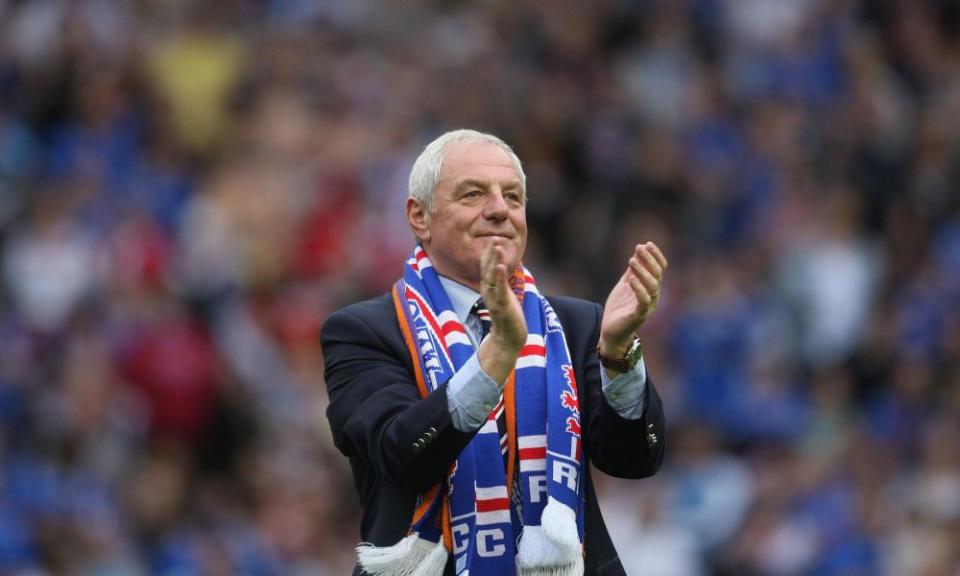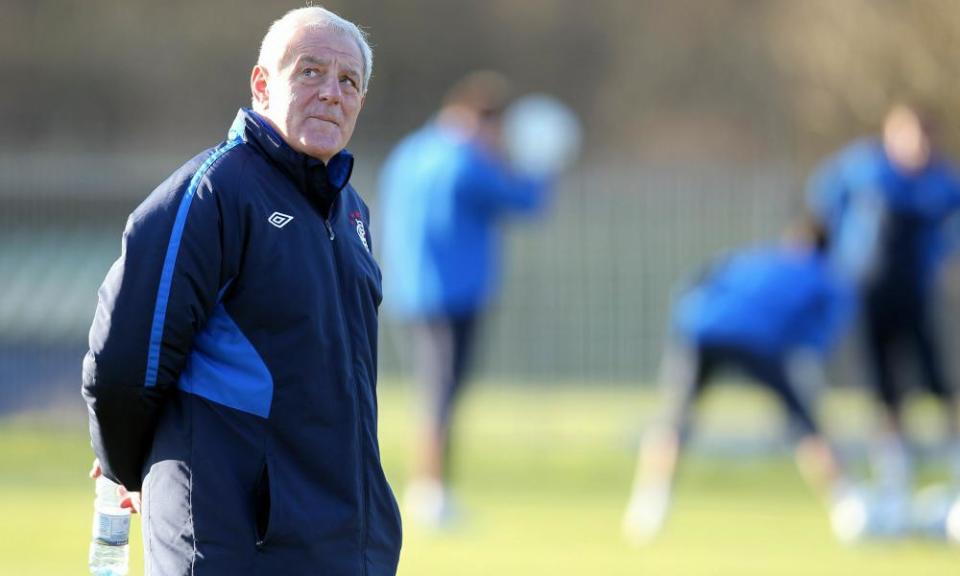Walter Smith obituary

Walter Smith, who has died aged 73 of cancer, was one of the most successful football managers Scotland has produced, winning respect across the tribal lines that characterise Scottish football. While Rangers defined his career, his wider reputation also reflected times with Dundee United, Everton and the Scottish national team.
A working-class Glaswegian and Rangers supporter by upbringing, he was a classic and increasingly rare example of a manager who led a club that also embodied his own deep-rooted loyalties. It was this affinity, as well as the success that he brought to Rangers, that made him particularly revered in the eyes of the fans.
Under Smith’s leadership, in two spells, Rangers won 21 trophies including a straight run of seven league titles in the 1990s. In his second period at Ibrox he also took them close to European victory, reaching the Uefa Cup final in 2008 when they lost to Zenit St Petersburg.
The period of Rangers domination in the 90s was transformational for Scottish football as a whole. That era began with the appointment of Graeme Souness as manager in 1986. Souness was a Liverpool legend but had no experience of either management or Scottish football. Smith, then highly regarded for his work at Dundee United, became his deputy.
The chair, David Murray, was committed to spending on a scale that would make the club not only dominant in Scotland but also competitive in Europe. Suddenly, some of England’s leading players were heading north in a reversal of the usual traffic in players.

Celtic were left trailing and forced to make their own substantial changes to compete in an entirely new environment. Souness, having established his managerial reputation at Ibrox, left for Liverpool in 1991. He wanted to take Smith with him but the alternative option of becoming Rangers manager was too attractive for the Glaswegian to turn down.
Over the next six years, Rangers were the highest spending club in British football. Eventually, the advent of large television deals for the English Premiership made such competition impossible. In the 90s, however, the result was not only massive success for Rangers under Smith, but also a string of world-class players, including Chris Woods, Paul Gascoigne and Brian Laudrup, gracing Ibrox and the club lifting 13 trophies, including a “treble” in 1992-93.
This stint ended in 1998 when, after a short break, Smith became manager of Everton, where he was hamstrung by a lack of available cash. Nevertheless, his four years at Goodison Park saw the club steer clear of relegation while also finding financial stability. There was then a brief spell as assistant to Alex Ferguson at Manchester United, during which they defeated Millwall to win the FA Cup.
In 2004 Smith took over as Scotland manager at a time when the national side was in dire straits, with Tommy Burns as his assistant. There was a revival in fortunes for the team, including a home draw with Italy and an away win against Norway. However, hopes of reaching the 2006 World Cup finals were ended by a 1–0 home defeat against Belarus. Scotland made a promising start to the campaign for the following European championships but by this time, Ibrox was again calling.
A bold move by Rangers in appointing the French manager Paul Le Guen had not proved successful and Smith was recalled in 2007, once again bringing great success with three successive league titles, two Scottish Cups and three League Cups. He retired in 2011 as Rangers’ financial troubles started to manifest themselves, returning as a non-executive director the following year and then, briefly, as chair in 2013.
However, by this time, the club was caught up in a bewildering series of intrigues and takeovers as well as having been punished with demotion, in 2012, for having gone into administration. Smith was a man of great probity and not even his loyalty to Rangers or to his friend Ally McCoist, who had taken on the role of manager, could persuade him to stay in an Ibrox environment he did not recognise.
Born in Lanark, Walter was brought up in Carmyle, in the east end of Glasgow. His father was a crane driver and his mother played the piano at the local church. It was, he later recalled, a happy childhood dominated by football from morning till night. His grandfather took him to his first Rangers game when he was five, beginning a lifelong love affair.
While playing amateur football he studied at Coatbridge Technical College and became an apprentice with the South of Scotland Electricity Board before signing for Dundee United in 1966.
Smith was a competent defender and played 134 games for the club. However, the manager, Jim McLean, believed he could be a better coach than a player and, after injury ended his playing career in 1976, Smith became McLean’s assistant at Tannadice. They were hard taskmasters but extremely successful and Dundee United, alongside Ferguson’s Aberdeen, briefly became the “New Firm” of Scottish football. They won the Scottish League in 1982-83 and reached the semi-final of the European Cup the following year.
A decent, humane and honourable man, Smith became an admired figure far beyond football. In particular, his close friendship with the Celtic hero Burns became a symbol of there being matters much more important than the beautiful game. It was a powerful and influential piece of imagery when Smith was a pall-bearer at his friend’s funeral in 2008.
Smith is survived by his wife, Ethel, and their sons, Neil and Steven.
• Walter Smith, football manager, born 24 February 1948; died 26 October 2021

 Yahoo Movies
Yahoo Movies 